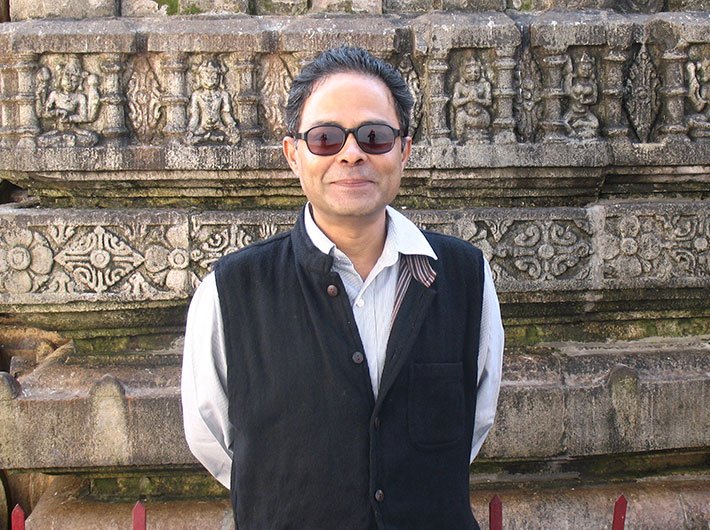Professor Mohan Rao of Jawaharlal Nehru University talks about the pros and cons of the surrogacy bill
The Surrogacy (Regulation) Bill, 2016, which aims to stop commercial surrogacy, was approved by the cabinet last month. However, the bill has come up with its own set of restrictions. Single parents, gays and live-in partners cannot have a surrogate child. Only couples who have been married for at least five years and are medically unfit are eligible.
The bill has raised a debate over the limited options for childless couples and for women who carry other people’s babies as a way out of poverty. Mohan Rao of Jawaharlal Nehru University, who has co-edited with Sarah Hodges, ‘Public Health and Private Wealth: Stem Cells, Surrogacy and Other Strategic Bodies’ (Oxford University Press) talks about the pros and cons of the bill.
What are your views regarding the proposed surrogacy bill?
I would like to place it in a certain kind of historical context, and that is neoliberalism and how it has affected the health sector. Neoliberalism has given a policy impetus to the growth of the corporate sector in medical care that has catered to both medical tourism and reproductive health tourism. Private equity funds, loans from banks and venture capital together created this sector. Neoliberalism has also led to the commercialisation of medical care along with the commodification of human body. It is only in this context that we can understand what exactly is going on in the world of commercial surrogacy. Over a period of time, several third-world countries have encouraged the growth of the corporate sector in healthcare, which had excess capacities. With time, this sector has, with state support, built capacities to attend to the global demand for reproductive tourism. The most important countries catering to reproductive tourism are India, Thailand, Ukraine and Russia. Now, this tells us something about the architecture of global power. There are some states in the United States, which permit commercial surrogacy, but otherwise most states in the US or in western Europe do not permit any kind of trade of body parts. Thailand of course has recently banned commercial surrogacy.
Is this bill about morality, ethics or medical science?
This bill is based on the HFEA [Human Fertilisation and Embryology Authority] guidelines of the UK and 129th Law Commission Report of 2009. So, it hasn’t come out of nowhere. Obviously, a lot of thinking has gone into this. But it says only altruistic surrogacy, where a woman is ready to be a surrogate without any financial gain, is possible and that too to a select few. The bill in its motive to ban commercial surrogacy is right but there is a need to open up altruistic surrogacy to everybody, and not restrict it to couples married for five years and who are infertile. The option of altruistic surrogacy should be available to single women and men – whether they are lesbians or gays is irrelevant – and to live-in couples. There should be no discrimination. Here is where the so-called morality comes in, with Sushma Swaraj talking about “our ethos”. Our ethos actually accepted alternative sexualities; it was Victorian England that imposed the ridiculous section 377. We need to get rid of this law.
Please elaborate your views on the discrimination built in the bill.
There are some absurd points that need to be rectified, but the bill has banned commercial exploitation of women. It has reduced what I call reproductive servitude. With this bill, the rampant practice of commercial exploitation of poor women can be reduced, and to that extent the government must be congratulated. They have done the right thing for the wrong reasons.
The bill says that only women who are legally married for five years can opt to be surrogates. It also says that only close relatives can volunteer for surrogacy. Does it restrict a woman’s right to choose?
There was a case sometime back where a young tribal woman from Salem district, Tamil Nadu, was married at the age of 16. At 17, her husband and mother-in-law forced her to sell a kidney. She was forced to sell eggs 13 times. She was forced to go through one cycle of surrogacy. She had two children of her own, but her husband was forcing her to go in for a second cycle of surrogacy when she was 28. At this point she ran away from home and took refuge at a woman’s shelter. Her husband came and stabbed her. This story came out in the dying declaration she made. Now in a scenario like this, to talk of woman’s choice is absurd.
But I certainly don’t agree with the right-to-choose argument at all. A woman’s right to choose comes from the idea of making reproductive choices and this idea is extensively critiqued, especially by feminists of colour who have rejected this concept as hollow, market-driven. They make an argument for what is called reproductive justice. We can have reproductive justice only when we have socio-economic equality. In the face of rampant inequalities, what poor women have is reproductive unfreedoms, as they take recourse to commercial surrogacy.
What about poor women for whom commercial surrogacy is a source of income?
Let us be very clear that it is not the women who benefit but the commercial surrogacy industry. The commercial surrogates obtain only 20 to 25 percent of the transaction cost. The rest goes to doctors, middlemen, lawyers and so on. This industry is very opaque and we do not know what proportion goes to the doctor and what to the middlemen. So, it’s a major source of money for the industry and not the surrogate mother.
How does commercial surrogacy industry work in India?
There are a number of actors and institutions which constitute the reproductive tourism industry. It comprises high-end doctors, lawyers, medical establishments, and also TPAs [third party administrators], which is a sophisticated way of saying middlemen who recruit the surrogates, often through NGOs. So we have NGOs which are sometimes run by former surrogates, some by TPAs. Some TPAs and some doctors also run surrogate hostels, a sort of baby farm.
A minster had recently said that commercial surrogacy has become a fashion for celebrities. Do you agree?
I don’t know if two celebrity couples opting for surrogacy make it a fashion. I could understand the problem of a Bollywood couple where the wife was medically unfit to conceive but for the other celebrity couple?
Do you think surrogacy in anyway is discouraging adoption?
It’s not just discouraging adoption, it is encouraging the worst kinds of patriarchal ideas, like the child is my blood, my line, etc. and as a feminist I am opposed to such ideas. I think now we should be saying it is fine not to have children if they don’t want to. All women who go in for IVF talk of enormous social pressures to have a baby, from the family, and from society at large. Another aspect to ponder upon is that what is the government doing to prevent infertility? Surrogacy is only one curative option that lies at the end of the road. What must be done much earlier is to prevent infertility and promote adoption. There is a need to encourage adoption by making the process easier.
Do you think instead of a ban, India’s surrogacy industry needs regulation?
It does not work. This is not the medical industry that can be regulated. India has the largest and least regulated medical care industry in the world. We are not able to regulate the industry to correct the appalling sex ratio at birth; we are unable to prevent sex selective abortion. Basically, we are unable to do anything with the medical industry we have. So, banning commercial surrogacy is the only way forward.
What do you think is missing in this bill? How would you have framed it?
I would have opened up altruistic surrogacy for others without any discrimination, and I would also work on the agencies which bring about implementation and give some indication on how to fund the implementation.
What should be done to rectify this bill?
Singles, whether gay or not, should have the freedom to go in for altruistic surrogacy. It should be an option open to anybody who wants to go for it. The government should simultaneously make adoption less difficult. They should also strengthen the public health systems to cut down on the load of primary infertility we have.
How is the scenario going to be, if the bill is passed?
It is going to be difficult for the government to pass the bill, because there are very powerful forces opposed to it. These include the medical industry, the reproductive tourism industry, organisations like the FICCI and the CII, and I know an association of reproductive tourism which has already started fundraising in order to challenge the bill in the supreme court.
If this bill passes, it will be historic. There has been so much irregularity in all this. The number of embryos that have been harvested from women, the number of embryos inserted into women and so on has been very scandalous. Banning commercial surrogacy is the only way out. n
sakshi@governancenow.com
(The article appears in September 16-30, 2016 edition of Governance Now)

